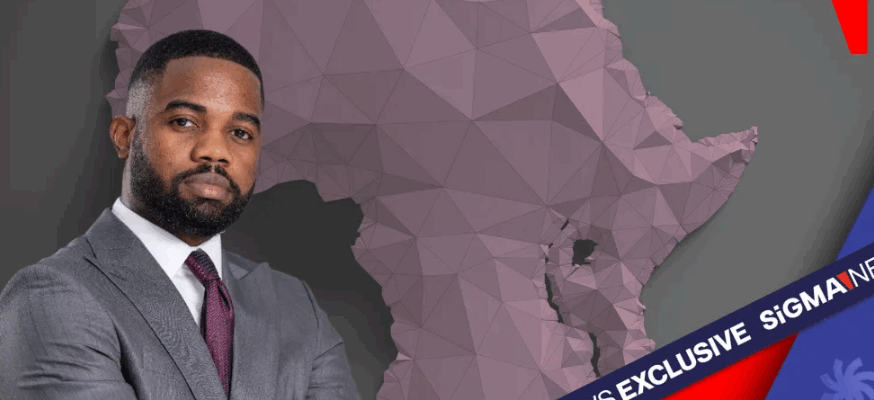SiGMA News recently sat down with Joel Madingu, Legal & Corporate Affairs Manager at Velex Advisory, to discuss his professional insights into the legal and business environment of Francophone Africa. Covering everything from tax policy to currency convertibility, and from data protection to emerging game formats, Joel offers a practical roadmap for operators aiming to succeed in this dynamic region.
Interview with Joel Madingu: Inside the Legal Landscape of Francophone Africa’s iGaming Sector

Legal Gaps and Grey Areas
One of the biggest issues, according to Joel, is the absence of clear legal distinctions between land-based gambling and online gambling in many Francophone countries.
This regulatory vacuum leaves some platforms operating under vague licenses that could be revoked without warning or made subject to new fees. In the Democratic Republic of Congo (DRC), for example, online gambling was legalized via ministerial decree rather than a comprehensive law.
The lack of definition for cross-border gambling also poses challenges. Most current laws focus on domestic activity, with no structured framework for handling foreign operators serving local players — and there’s nothing akin to the EU’s “shared license” model.
Taxation is another grey area. In many jurisdictions, online gambling tax rules are unclear or fail to distinguish between gross revenue and net revenue. VAT, withholding tax, and player winnings tax are often inconsistent, making long-term financial planning a gamble in itself.
In terms of personal data protection, some countries lack comprehensive frameworks like GDPR, even though online gambling platforms collect sensitive information such as ID numbers, bank details, and behavioral data. Without local laws or GDPR-level compliance, operators risk lawsuits or even international sanctions.
New forms of gambling — “play-to-earn” games, NFT-based gaming, and loot boxes — remain outside most existing laws. The danger is that operators could be forced to shut down or pay hefty new licensing fees if sudden regulation kicks in.
AML/CFT and Compliance Upgrades
Since 2022, the DRC has strengthened its anti-money laundering (AML) and counter-terrorism financing (CFT) framework. This move aligns with its status as an associate member of the Central African anti-money laundering task force (GABAC) and an observer in the Eastern and Southern Africa AML group.
Sports betting and casinos are now classified as Designated Non-Financial Businesses and Professions (DNFBPs), and must:
- Appoint a Money Laundering Reporting Officer (MLRO) to flag suspicious transactions;
- Verify customer identities and beneficial owners, checking document authenticity and representative authority;
- Monitor all transactions — even occasional ones — to ensure funds are from legitimate sources.
Payment, FX, and Tax Challenges
In Francophone Africa, mobile payments dominate. But Joel warns that bank-issued e-wallets are often off-limits, as most banks refuse to work with gambling operators, labeling them high-risk. Cryptocurrency payment solutions face major unresolved legal hurdles.
Tax breaks are practically non-existent. Gambling, classified as a high-risk financial activity, is rarely eligible for exemptions. In the DRC, winnings are taxed at 10%, and there’s a 16% VAT on wagers — although this VAT rule is currently suspended, meaning some operators haven’t been charging it.
Foreign exchange restrictions are another concern. Currency depreciation combined with artificially low official rates can erode profits when repatriated. Some investors resort to unofficial transfer channels, but these come with serious legal risks, including potential AML violations. In several countries, central bank approval is required for any international transfer, alongside full tax compliance.
Technical Certification and Licensing
While regulations don’t always mandate it, some regulators are moving toward international certification standards to ensure game fairness, data security, AML/CFT compliance, and player protection.
In countries like Senegal and Côte d’Ivoire, recognized certifications include:
- RNG (Random Number Generator)
- ISO/IEC 27001
- PCI-DSS
However, a license from one Francophone country cannot be used in another. Each country maintains regulatory sovereignty, meaning operators must apply for licenses individually and cannot expect fast-track residency or investment benefits.
Advice for Regulators and the Five-Year Outlook
Joel’s advice to regulators: protect without stifling, open without losing control.
- Create a clear, transparent legal framework to attract investors while safeguarding consumers;
- Build a licensing regime that’s strict enough to keep out illicit actors but practical for legitimate businesses;
- Maintain ongoing dialogue with operators to identify gaps and address them before they escalate.
Looking ahead five years, Joel envisions Francophone Africa’s iGaming industry as digital, ethical, inclusive, and self-reliant, featuring:
- Harmonized and transparent laws;
- Strong player trust and protection;
- Technology-driven innovation;
- Tangible economic and social benefits;
- Local operator support via quotas or tax incentives;
- Regional cooperation;
- Robust anti-money laundering and fraud prevention measures.












